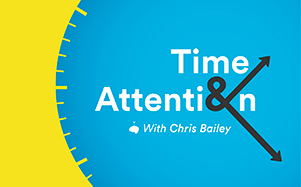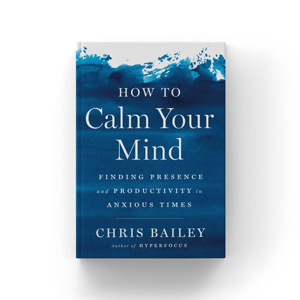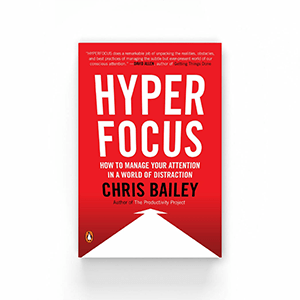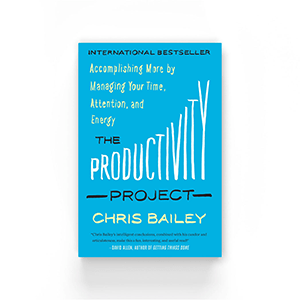Estimated Reading Time: 12 minutes, 1s. It’s pretty skimmable, though :)

If you’re anything like me, you have way more than 40 hours of work to do every week.
On the surface, it would appear that there are two answers to this problem:
- Continue working 40 hours a week, and fall behind
- Work more than 40 hours every week, and try to catch up to become more productive
But in practice, the choice isn’t this simple. Even though working longer hours would appear on the surface to make you more productive, I think it is the exact wrong approach to take–not because you’ll have less time to relax and recharge, even though you will–but because this approach has been proven time and time again to make you much less productive in the long-run.
I consider myself a productive person, but aside from being a total slob for a week, I don’t recall being as unproductive as when I worked 90-hour weeks last month.
For the entire month of February, I alternated between working 90 hours one week, and then 20 hours the next, to see how working extreme hours would affect my productivity. Here are 10 of the biggest lessons I learned from that experiment!
1. Working longer hours will make you more productive, but only in the short-run
This is my biggest finding of this productivity experiment: There are huge productivity benefits to be gained by investing more time into your work, but only in the short-run.
In the long-run, working long hours pushes you to procrastinate more, work less efficiently, and causes you to get less done, usually without you realizing it. In fact, after 40 hours, research has shown that your marginal productivity begins to drop, until “at approximately eight 60-hour weeks, the total work done is the same as what would have been done in eight 40-hour weeks”. And with 70 and 80-hour weeks, you reach the break-even point in just three weeks.1
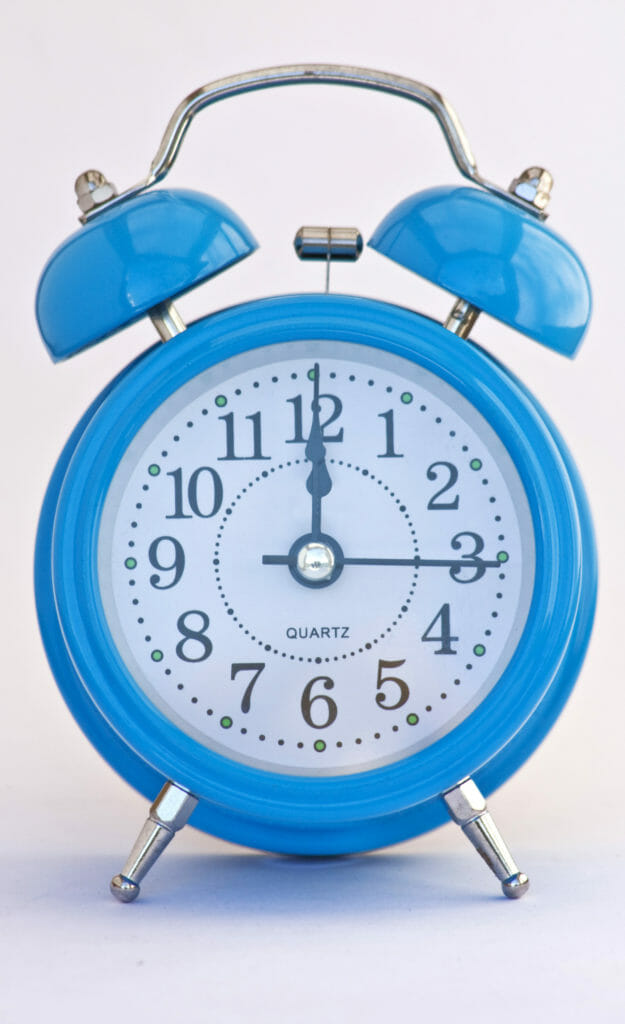 When I was working 90-hour weeks, I got a lot done, but only during the first few days of the week; after that I didn’t have the time or mental space to recharge, so my productivity practically fell off a cliff.2
When I was working 90-hour weeks, I got a lot done, but only during the first few days of the week; after that I didn’t have the time or mental space to recharge, so my productivity practically fell off a cliff.2
It’s easy to fool yourself into thinking working longer hours will make you more productive; after all, for a while it does. But I personally believe, very strongly, that there are fundamental limits to how much work you can get done, and that past a certain point most of your productivity gains come from working smarter–not harder.
Most studies seem to conclude that the magical amount of hours you should work a week is around 40 hours. After this experiment, I would tend to agree.
2. Just because you’re busy, doesn’t mean you’re productive
There is a big difference between being busy and being productive, though sometimes it’s difficult to distinguish between the two.
In my view, productivity has absolutely nothing to do with how much you do; it has everything to do with how much you accomplish. After all, you can do a lot over the course of a day without actually accomplishing anything. For example, if you work 60-hour weeks, but you mindlessly chat with your coworkers, check your email all day long, and work on low-leverage tasks most of the day, you’re going to be a lot less productive than someone who works half that time, even though you do more actual work than they do.
Productivity isn’t about how much you get done over a day–it’s about how much you accomplish.
3. Just because you feel productive, doesn’t mean you’re productive
Just because you feel productive, doesn’t mean you’re actually productive. In fact, I can think of several where the opposite is the case:
- When you multitask, you feel more productive than when you unitask, even though studies have shown time and time again that you’re not.
- When you drink caffeine, you feel more productive because your mind is more stimulated, but your body adapts to how much caffeine you consume, and caffeine can make you less productive with creative tasks.
- You feel more productive when you check your email 10 times an hour instead of writing a report, because you receive more feedback from what you’re working on. But you’re probably not paid to check your email; you’re paid to produce and achieve specific outcomes for who you work for.
The same is true for when you consistently work long hours. I think working longer hours makes you feel more productive, and a lot less guilty about the mountain of work you have to accomplish.
But working extra hours may only feel that way, especially when you’re not investing your time and energy into the smartest, highest-leverage tasks.
4. Schedule time where you completely separate from your work
I think scheduling time where you completely disconnect from your work allows you the time and space to question the value of what you’re working on, so you can work smarter, and not just harder. As a simplified example, if you work as an accountant, you could be busy sharpening pencils all day (or checking your email–a close digital equivalent), or you could decide to work smarter by stepping back from your work, reflecting on what the highest-leverage activities in your work are, and then working on those instead.
Completely separating from your work makes you more creative, focused, and energized, because it allows you to see your work from an elevated, 10,000 foot perspective. That lets you see what you should be doing differently, and get more done in less time, because you’ll be working smarter, not just harder. You may feel less productive doing so, but like with unitasking and not doing busy work, you’ll get a lot more accomplished.
When I forced myself to work 90-hour weeks, I constantly found myself working on low-leverage, bullshit activities that didn’t lead to meaningful results at the end of the day–something I only discovered when I stepped back from my work the week after.
Interlude: My 10 favorite productivity experiments from my year of productivity
10 of my favorite experiments from my year of productivity, in no particular order. Just click on any picture to visit the experiment’s article.
5. For every minute you plan, you’ll save 5 minutes in execution
One my favorite productivity quotes is from Brian Tracy:
“Every minute you spend in planning, saves 10 minutes in execution.” – Brian Tracy
I’d argue the number is a bit smaller than 10, but regardless, the principle is the same.3 When all you do is execute and you never step back from your work to plan, it’s more difficult to work smarter. Even if you consistently work harder than everyone else, if you’re not working on the smartest, highest-leverage tasks, you’re not going to be as productive as someone who works half as much as you do.
When you take a step back from your work and plan what to do instead of simply executing all of the time, you become more focused, and will find it easier to channel your time and energy into a few concentrated targets, making you much more productive. When you simply hunker down and dedicate a lot of time to a task, I think it becomes very difficult to determine which targets you should focus on.
6. To get more done in less time, schedule less time to do something
Throwing more time at your tasks is the exact wrong way to get more done. A much more productive strategy? Throw more energy at your tasks.
My favorite way to do this is to dedicate less time to what I have to do.
An interesting thing happens when you dedicate less time to what you have to do. The less time you schedule to complete a task, the more you push yourself to expend more energy over less time so you can get it done. Conversely, when you schedule more time to complete a task, you give yourself more room to slack off and procrastinate.
During this experiment I alternated between working 90 hours one week, and then 20 the next. Interestingly, when I only had 20 hours to do 40 hours of work in, I got way more done in less time. Since I had a lot less time to accomplish everything in, I essentially forced myself to channel all of my energy and time into what I had to accomplish.
The more work you have to do, the more time you naturally want to dedicate to getting that work done. It’s the approach most people take, and it’s the approach that makes the most sense on the surface. But I would argue that scheduling less time for a task, not more, is what will allow you to get more done in less time.

7. Guard and nurture your energy levels at all times
According to Brian Tracy, author of the fantastic book Eat That Frog, “[o]ne of the most important requirements for being happy and productive is for you to guard and nurture your energy levels at all times.” For example, when you have a lot to do, if you’re running on just a few hours of sleep, sometimes the most productive thing you can do is to go to bed early and get a full night’s sleep.
Brian offers up four questions that will let you reflect on your energy levels (I took these straight from Eat That Frog):
- What am I doing physically that I should do more of?
- What am I doing physically that I should do less of?
- What am I not doing that I should start doing if I want to perform at my best?
- What am I doing today that affects my health that I should stop doing altogether?
 I think of energy as the fuel you burn throughout the day to get work done, and unfortunately during this experiment I removed many elements from my life that recharged and energized me, simply because I didn’t have time for them. Especially if you want to push yourself to get more done in less time, guarding and nurturing your energy levels at all times is a fantastic way to become more productive.
I think of energy as the fuel you burn throughout the day to get work done, and unfortunately during this experiment I removed many elements from my life that recharged and energized me, simply because I didn’t have time for them. Especially if you want to push yourself to get more done in less time, guarding and nurturing your energy levels at all times is a fantastic way to become more productive.
8. Working long hours will drain your willpower reserves
Every time you force yourself to work when you don’t want to, you use up some of your willpower–a mental resource that can be depleted.4
Pushing myself to work 90-hour weeks amidst a significant amount of mental resistance completely drained my willpower reserves, particularly since so much of my motivation for AYOP is intrinsic. This had a number of disastrous effects on my productivity:
- I procrastinated more than I ever have before–as much as 3-4 hours on some days5
- My productivity crashed on Wednesday and Thursday of my 90-hour weeks, after which my mind simply resisted doing more work
- I found myself wanting to focus on low-leverage, bullshit tasks (like checking Google Analytics, Twitter, and Email) instead of doing stuff that actually mattered
Though you may not work weeks as long as 90 hours, I think when you push yourself to work hours longer than you feel comfortable with, you begin to deplete your willpower reserves, which zaps you of your energy and motivation, both key contributors to how productive you are.
9. One of the worst (and least productive) things you can do is be dishonest with yourself
One of the topics I write about quite often on AYOP is the importance of being honest with yourself, because I think pretty much every productivity tactic and hack is useless if you’re not honest with yourself. For example:
- Is your to-do list doable, or do you keep putting things off to another day?
- Do you make goals or New Year’s Resolutions that are too ambitious and give up a few weeks in, instead of setting more realistic goals from the start?
- Do you hit the snooze button 5 times every morning instead of setting an alarm for when you actually will get up?
- Do you ignore your body when it tells you that it’s full?
- Do you ignore your mind when it tells you it’s overworked?
- Do you spend several hours in front of the TV, and then try to forget about where your time went?
During this experiment, the more pressure I put on myself to be productive, the more dishonest I became with myself. I tried to blindly will myself into being productive when I didn’t have the energy to be, which caused me to procrastinate and make excuses for doing less work every day. Instead of being honest with myself and thinking about how much energy I had to be productive, I pushed myself too hard, which made me even less productive at the end of the day because I burned out from not taking enough breaks.
I think the more pressure you put on yourself to be productive, the less honest you become with yourself. That can harm your productivity more than you think.
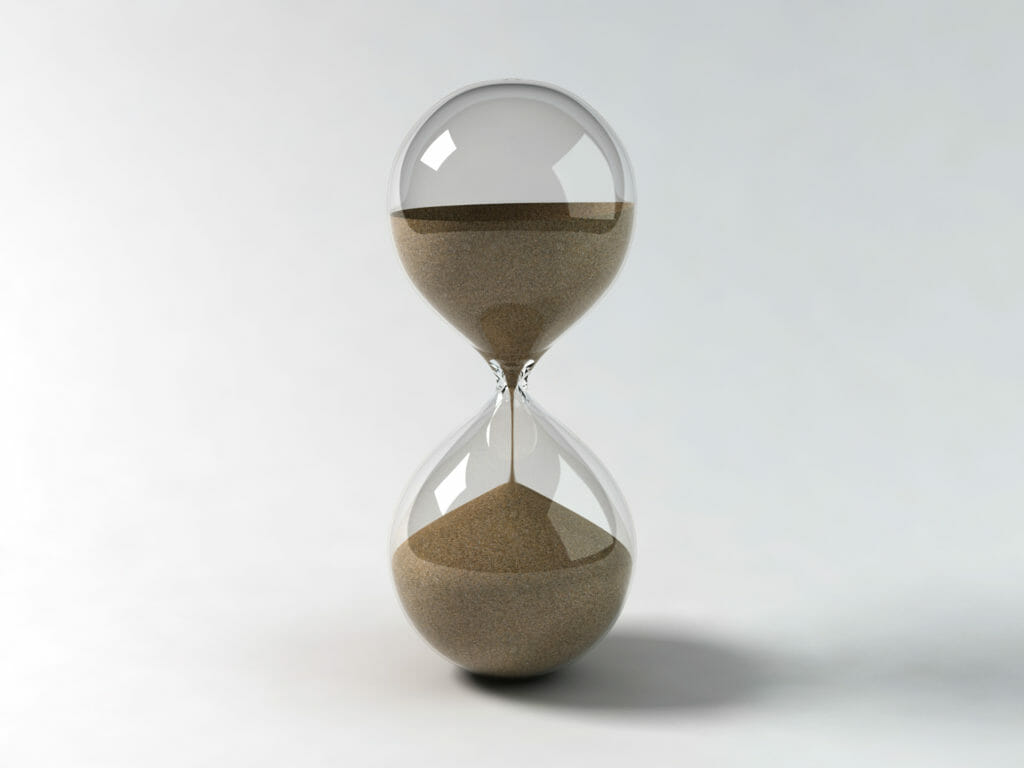
10. There are way more important things in life than being productive
It goes without saying, but every single second you spend working is a second you don’t get to spend doing something more meaningful, like spending time with your loved ones. Sure, this point is total common sense, but unfortunately common sense isn’t always common action.
Even when I spent a little time with my girlfriend when working 90-hour weeks, I felt incredibly energized afterward. But these types of commitments–the ones that are more important, but not as urgent as the things on your to-do list–are unfortunately the first things many people stop doing when they get busy at work. I’ll admit that I’m guilty of this as much as anyone.
When you work excessive hours, that extra time has to come from somewhere, which may force you to push away the very things that reenergize you, like working out and spending time with loved ones. After you stop doing the very things that reenergize you, you begin to fight a losing battle, and become stressed out, unmotivated, and ultimately less productive.
Particularly when working long hours has been shown to make you no more productive than working 40-hour weeks (especially in the long-term), I think that often one of the most productive things you can do is take a step back from your work. Doing so will help you reenergize, work smarter, come up with better solutions, guard yourself against low-leverage tasks, and best of all, regain control over your work. It’s counterintuitive, but separating yourself from your work and focusing on the things in your life that are more important might just make you more productive in the long-run.
I made sure to continue to get enough sleep and hit the gym every morning because both activities affect my energy so much, but I still crashed around Wednesday or Thursday. ↩
Albeit, I don’t have much evidence to back this up; just a hunch. ↩
According to RescueTime. ↩

